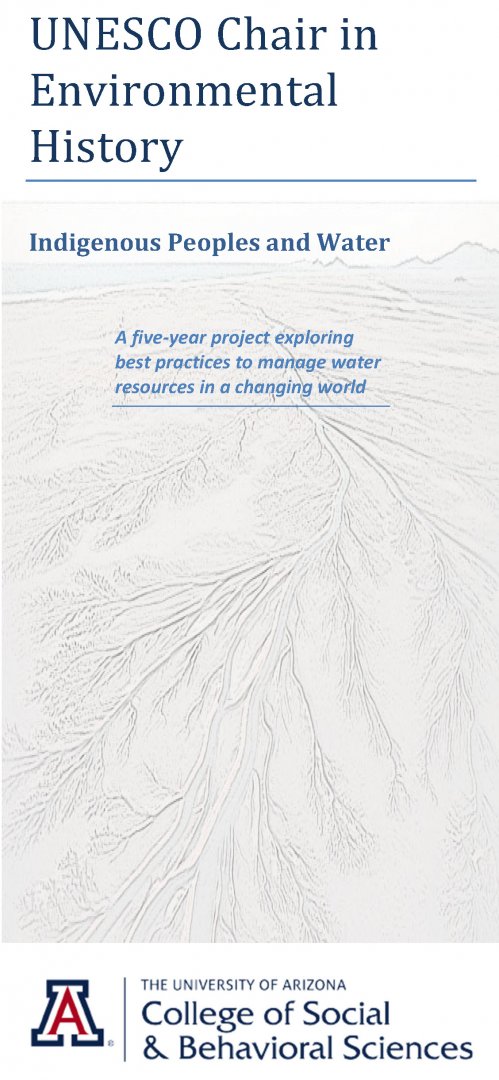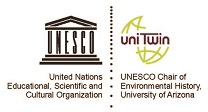Thank you for visiting the website of the UNESCO Chair in Environmental History at the  University of Arizona (UA)!
University of Arizona (UA)!
Launched in 1992, the UNESCO Chairs Programme, which involves over 700 institutions in 116 countries, promotes international inter-university cooperation and networking to enhance institutional capacities through knowledge sharing and collaborative work. The programme supports key priority areas related to UNESCO’s fields of competence – i.e. education, the natural and social sciences, culture and communication. For more on the network see: https://en.unesco.org/unitwin-unesco-chairs-programme. In its current framework, the global UNESCO Chair network supports research and teaching initiatives designed to support the United Nations Sustainable Development Goals that were articulated by the UN in 2015.
At the University of Arizona, the UNESCO Chair in Environmental History supports research and teaching that explores contemporary environmental challenges through the lens of history. We strongly feel that the range of options available to address these challenges is shaped by historical trajectories. Our current five-year project focuses on indigenous peoples and water. Generously supported by the UA College of Social and Behavioral Sciences, the Department of History, and the President's Office of Eastern Washington University (our co-partner), the Chair has supported graduate research and public educational outreach efforts focused on exploring the contemporary outcomes of the historical relationship between indigenous communities and water. We have supported MA and PhD research, sponsored community forums, and hosted K-12 teacher training programs (highlighted on this website).
We will be reviewing our activities in the near future with the goal of defining our next five-year teaching and research project. Let us know what you think!
Thank you!
David Pietz, UNESCO Chair in Environmental History
